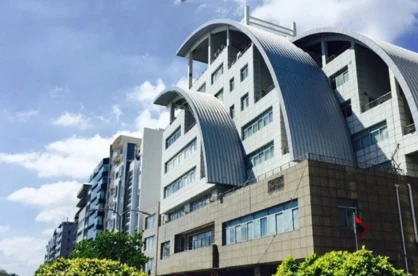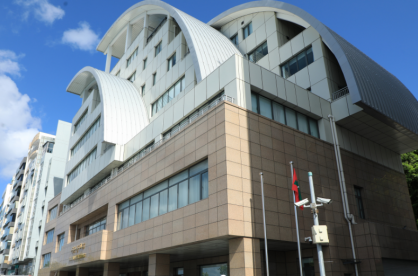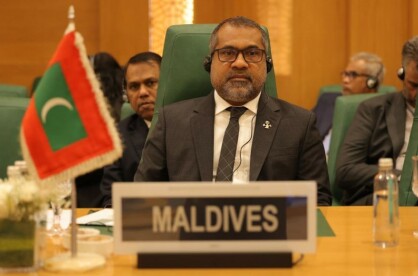Prison parallels
Equality before the law holds that non-political inmates be treated the same as incarcerated politicians — reality could not be further.

Equality before the law holds that non-political inmates be treated the same as incarcerated politicians — reality could not be further.

In a country where the rule of law is sacred, where human rights are seen as universal in action as they are on paper, the reality eludes this scenario. To add insult to injury, the people who are in danger of this disparity are the citizenry, while the politically involved are not.
MFR has covered various instances were justice was served selectively, and news outlets constantly cover the same pattern of stories when describing the plights of criminally charged politicians. Once an arrest is made, the politically motivated are trooped to incarceration facilities, a plea is made with regard to their health, and then they are on the next flight either overseas or their imprisonment is shifted to their own homes with restricted movement.
In a perfect scenario, the non-political inmates would also receive the same treatment, yet this is not the case. To further distinguish the two types of people, the 1800-plus people currently in correctional facilities around the country are still in deplorable conditions, with basic rights just barely within reach, and this flies in the face of the concept of ‘correctional’ centres. Bail is not even a common denominator.
Common operating procedures adhered to around the world have certain standards to be met for the incarcerated. Yard time for exercise, acceptable food quality, and proper medical help, which includes getting to see a general practitioner on a scheduled timeframe, yet in reality these values are stretched and contorted. According to sources who have been in this system before, the situation seems to be contorted even more if the incarcerated individual is in remand, or held while their case is being processed and a sentence hasn’t been passed on them.
Yard time is restricted to once a month, which means these people have to live without any sunlight for that entire duration. The food is subpar even considering the circumstances, and proper ventilation is not provided for either, through fans and other appliances. As for healthcare, access to a general practitioner is provided every two weeks, but a specialist is a lot more difficult to get a hold of. Added to that, if tests and scans need to be done, the unfortunate inmate has to be on an indeterminate waitlist; one such inmate is reportedly waiting on an MRI scan for over eight months at the writing of this article.
Having understood the current state of affairs for the citizenry behind bars, now to draw skewed parallels with the politicians who are subjected to imprisonment, due to either politically motivated issues or for having committed heinous crimes of sexual harassment, terrorism, money laundering and embezzlement.
According to sources, as well as from current news and individual statements by those in question, it appears their stay within confinement is quite different. They are housed in a different unit, and their meals are not just better, but allegedly high class gourmet. While this could be subjective, ice cream is not, and the fact that this and various selections are provided for the political inmates only hammers in the wedge of unfairness.
Going beyond the four walls, the privileges of being a politician extends the inmate’s incarceration to their homes. Both former President Abdulla Yameen and former Vice President Ahmed Adeeb, prosecuted and charged under the same laws that charged victims of drug abuse and those involved in petty theft as well as murders, are now spending the rest of their sentences at home, due to ‘health’ reasons.
These are individuals who, during their reign, seemed not to suffer from incapacitating illnesses, yet once justice attempted to catch up with them, so did these illnesses. While not denying the truth behind this, the fact that the same opportunity is not extended to the rest of the prison population is damnably profound. A trend worth mentioning in this juncture is how at the turn of each administration, certain sentences get overturned regarding those involving politicians. Certain sentences even get pardoned yet the same privilege stays well beyond the reach of those who don’t belong to this category.
Horror stories of prisoner maltreatment and torture has been circulating for decades. Manslaughter by negligence on the part of the officers in charge, use of excessive force to put down dissent and rioting in prison complexes, and the thousand-yard stare that accompanies anyone who manages to step out of the system are just a few points worth remembering. These are systemic issues that would require years of retraining, intense scrutiny and standardising of current practices. One issue that stands out prominently is that of unfair treatment due to political standing.
A horribly overused quote, but quite relevant, would be from George Orwell; “All animals are equal, but some are more equal than others." This is a preposterous state of affairs for this country, and a line can be drawn between societal problems and this issue. In other nations, especially those in the Nordic region, correctional facilities also serve as rehabilitation centres, where safety and health are key, and standards of life are elevated. The result? Some of the lowest crime rates in the world.
In the Maldives, the system is being dictated by those in power to prop up the treatment of political prisoners either by administrative interference or international pressure. Rather than strip away these privileges from the public figures behind bars, it is important to extend the same courtesy for the voters who got the administration into power in the first place. More needs to be said about this issue, and more support needs to be given to both the Human Rights Commission of Maldives as well as Human Rights Watch. It is within their mandate to ensure that some prisoners are not treated worse than others serving time behind the same fence.
Not only does this system actually amplify the vicious cycle of potential criminality of an inmate reentering society, it does double damage to the trust, if any at all, that the people would have of the justice system. These matters need urgent attention, and proper checks and balances established to ensure accountability at all levels. A study of the prison system and the basic services they lack has to be done, and the emphasis is best placed on the fact that proper prison institutions, and more, are provided for the more privileged.



